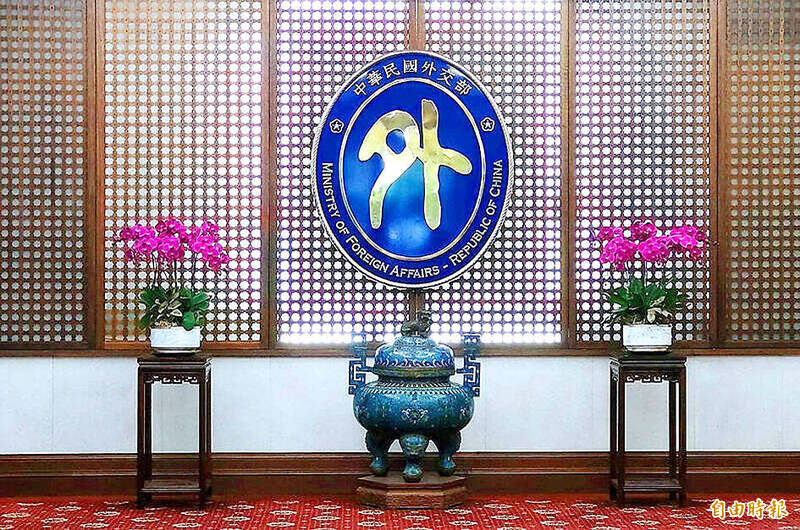《TAIPEI TIMES》 MOFA rebuts ‘erroneous’ sovereignty claim by Xi

The Ministry of Foreign Affairs’ logo is pictured in an undated photograph. Photo: Yang Cheng-yu, Taipei Times
/ Staff writer, with CNA
The Ministry of Foreign Affairs (MOFA) yesterday called out China for its “erroneous claim” about Taiwan and reaffirmed its stance that the country is sovereign and independent.
The ministry’s response followed remarks Chinese President Xi Jinping (習近平) made regarding Taiwan’s sovereignty during his phone call with US president-elect Donald Trump on Friday.
Taiwan and the People’s Republic of China are not subordinate to each other, and this has been a universally acknowledged fact and is the internationally recognized “status quo,” the ministry said.
Taiwan looks forward to further strengthening cooperation with the new Trump administration based on the solid and friendly foundation of Taiwan-US relations, it said.
The two sides would continue to jointly promote peace, stability and prosperity in the Taiwan Strait and the region, it added.
The Chinese Ministry of Foreign Affairs in a news release said that Xi told Trump that it was natural for two big countries to have some disagreements.
“The Taiwan question concerns China’s sovereignty and territorial integrity. The US side needs to approach it with prudence,” the release quoted Xi as saying.
Asked about the Trump-Xi phone call, Taiwanese academics yesterday said that it shows Trump’s straightforward negotiation style and that he puts US-China relations at the top of his agenda.
“The call came earlier than I expected,” Tamkang University Graduate Institute of International Affairs and Strategic Studies director Li Da-jung (李大中) said, adding that it reflects Trump’s style of taking the initiative.
Although Trump has nominated many China hawks for top roles in his administration, the frequency of phone calls and meetings between Trump and Xi would likely increase after Trump takes office, Li said.
“Trump has his own important goals,” he said, adding that one of his important goals would be to solve the “unfair” US trade imbalance with China.
Amid US-China tensions, Trump’s call with Xi shows that the communications between the two countries have not stopped, but Beijing would carefully watch the situation, instead of having overly rosy expectations, he said.
Following the call, Trump wrote on his social media site Truth Social that the two discussed “balancing trade, fentanyl, TikTok, and many other subjects,” but did not mention Taiwan.
However, Chinese state news agency Xinhua reported that Xi mentioned Taiwan during the call.
National Cheng Kung University professor of political science Wang Hung-jen (王宏仁) said that this showed the US and China each have their own focus and interpretation of the phone call.
It is somewhat surprising that Trump made the call, Wang said, adding that he expected Trump would prioritize the Russia-Ukraine issue and speak with Russian President Vladimir Putin first.
Trump’s call with Xi implies that he deems the US-China rivalry an important issue that needs to be urgently dealt with.
Information about the phone call publicized by the US and China indicates that they had a good conversation, but it does not necessarily mean Trump would soften his stance on US-China trade issues, he said.
Wang said the Trump administration might begin negotiations on US-China trade issues immediately after he is sworn in, adding that Trump and Xi might meet in person to lead the negotiations.
“Taiwan must be prepared to keep up with the information,” Wang said, adding that the phone call implied Trump is leading with a proactive and direct style to negotiations.
He might not depend on the bureaucratic channel of communication, so Taipei might have to make adjustments and establish direct communication channels with the Trump administration, he said.
新聞來源:TAIPEI TIMES























